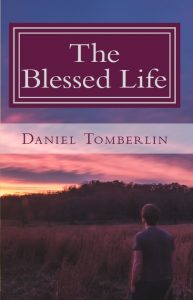 This is an excerpt from my forthcoming book, THE BLESSED LIFE.
This is an excerpt from my forthcoming book, THE BLESSED LIFE.
Then the LORD said to Cain, “Where is Abel your brother? . . . What have you done? The voice of your brother’s blood is crying to Me from the ground” (Genesis 4:9-10).
God warned Adam and Eve that if they rebelled against the divine order “you will surely die” (Genesis 2:17). However, the first death recorded in the Genesis narrative is not that of Adam or Eve, but of their son, Abel. Abel’s death occurred violently at the hand of his elder brother, Cain. The name Cain might be a reference to a spear, sword, or other weapon forged by a blacksmith (Wenham, Genesis 1-15, WBC, cf. Genesis 4:22). This could possibly be a reference as to how Cain murdered his brother. The same weapon that killed Abel also injured the hearts of Adam and Eve. Their act of rebellion resulted in a violent struggle between their sons. And they mourned.
The conflict between Cain and Abel has been described as a story that explains ancient animosity between farmers and herdsmen, or to explain sibling rivalry. However, it’s most basic purpose is to demonstrate that fallen humans embrace violence to resolve conflict. The Apostle Paul described the human condition:
They rush to commit murder. Destruction and misery always follow them. They don’t know where to find peace. They have no fear of God at all (Romans 3:15-18 NLT).
It is fair to suggest that the conflict between Cain and Abel was a religious conflict. Cain was in conflict with God. Cain’s anger towards God provoked violence towards his brother. He couldn’t kill God, so he killed the one with whom God was pleased. In striking down his brother, Cain murdered a person who was born in the image of God. It is ironic that the very religious acts that are observed to honor God can be corrupted to bring great dishonor to God’s name. Cain’s worship ended with Abel’s murder.
God hears of Cain’s violence because Abel’s blood cries out from the ground. Spilled blood cannot be silenced, but cries out to the Lord of life (von Rad, Genesis, OTL). In other words, creation groans because of the violence of humanity. If creation grieves over the spilled blood of one human, how much more does creation protest over the millions of humans, all born in the image of God, who have suffered violent deaths at the hands of their fellow humans? The groaning of creation is deafening and humans have become deaf to the sounds of violence.
Cain’s violent act led to his being expelled from the land. The earth that groaned because of Abel’s spilled blood, now curses Cain. The land from which he earned his living will now refuse to bear fruit. God declared, “Now you are cursed from the ground, which has opened its mouth to receive your brother’s blood from your hand. When you cultivate the ground, it will no longer yield its strength to you; you will be a vagrant and a wanderer on the earth” (Gen 4:11-12).
In response to God’s judgment, Cain cried out, “My punishment is too great to bear!” (Genesis 4:13). Adam and Eve are crying, the earth is groaning, Cain is lamenting, and Abel still speaks. The preacher of Hebrews proclaimed, “By faith Abel offered to God a better sacrifice than Cain, through which he obtained the testimony that he was righteous, God testifying about his gifts, and through faith, though he is dead, he still speaks” (Hebrews 11:4).
Amidst the clamor of human violence, and the wails of human grief, Abel’s righteous testimony may still be heard. The story of Abel is told in just a few words, but he is not insignificant. The preacher Hebrews mentions Abel as the first inductee into the “Hall of Faith.” Abel’s martyrdom is lifted as an example of faithfulness throughout the ages. What might Abel be saying to generations of humans who have suffered violence and warfare? Maybe Abel is declaring the hope that one day the weapons forged in the name of Cain will be turned into instruments for the cultivation of the earth and the flourishing of humanity.
And He will judge between the nations, and will render decisions for many peoples; and they will hammer their swords into plowshares and their spears into pruning hooks. Nation will not lift up sword against nation, and never again will they learn war (Isaiah 2:4).
